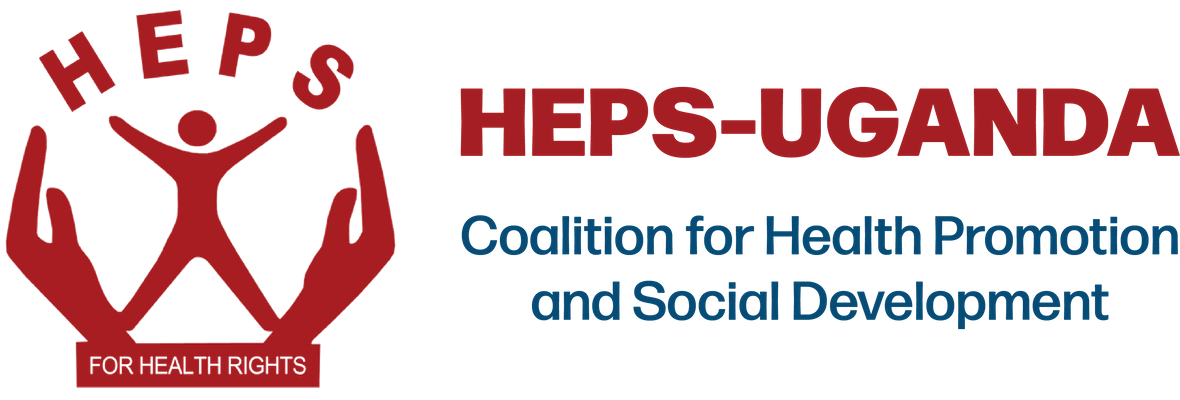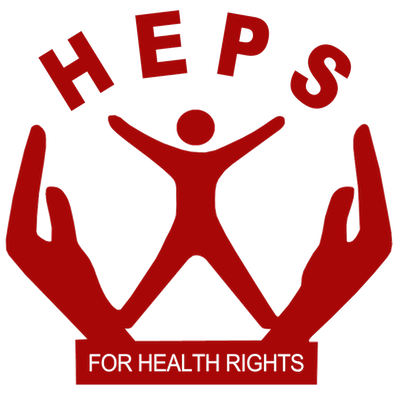From us,
FY 2025/26 national budget dialogue.HEPSUGANDA@25 participated in a post‑budget dialogue themed “Turning Challenges into Opportunities: Financing People‑Centred Economic Growth.” The forum gathered representatives from civil society, government, the private sector, and other stakeholders to scrutinise the FY 2025/26 funding priorities. Together, we set out to evaluate the economic impact and amplify citizens’ voices to shape an inclusive, responsive national budget.
Photo by HEPS staff-Timothy Mwanje
AMR data review meeting. HEPSUGANDA@25, working with Baylor Uganda, held a meeting on 19th June 2025. Attended by AMR surveillance and AMS members to review AMR, AMU, and AMC data. The aim is to ensure high-quality AMR/C/U data is produced from selected health facilities, and the evidence is generated to promote multi-stakeholder dialogue and inform national-level policy and Strategic planning on AMR.
Photo by Heps staff- Barbara Amumpaire
From our partners
CEHURD– In partnership with the Ministry of Health, Uganda, the Center for Health, Human Rights and Development held a consultative meeting to review the updated Self-Care Country Monitoring Dashboard. This dashboard is a key strategic tool created to help countries monitor the advancement and implementation of self-care policies and initiatives. Developed by the Self-Care Trailblazer Group (SCTG) SelfCare4UHC, the dashboard allows national stakeholders to track country-specific progress across the entire self-care policy journey from development and regulatory approval to execution and long-term sustainability.
From your community
New oxygen systems installed in Teso to combat child mortality
The FREO2 oxygen systems introduced under the oxygen as a service initiative have been installed in paediatric wards of Kapelebyong Health Centre IV(Bukedea district) and Serere Health Centre IV (Serere district). The installations were carried out by the FREO2 in effort to reduce child mortality caused by respiratory illness in the Teso Sub-region. FREO2 is a global non-profit organisation dedicated to reducing child deaths from respiratory conditions in low and lower-middle-income countries.
Ruharo Mission Hospital commissions radiology equipment
Ruharo Mission Hospital has commissioned a state-of-the-art Radiology Unit valued at over UGX 300 million. The X-ray machine is fully computerised and represents the latest technology available both in Uganda and internationally, and will allow for collaborative consultation and better treatment outcomes.
AMREF improves access to HPV vaccines for girls out of school. Local authorities in Nakaseke District are calling on the Ministry of Health to extend the delivery of the human papillomavirus (HPV) vaccine beyond schools into communities in a bid to reach more girls, especially those out of school. Speaking to Uganda Radio Network (URN), Gorrettie Mukagatare, the Secretary for Finance in the Nakaseke Local Government, emphasized the need for a broader outreach strategy. She noted that while the HPV vaccine, which protects against cervical cancer, is available in schools, many girls in areas such as Nakaseke North remain unreached due to being out of school.
From Uganda
AMREF improves access to HPV vaccines for girls out of school. Local authorities in Nakaseke District are calling on the Ministry of Health to extend the delivery of the human papillomavirus (HPV) vaccine beyond schools into communities in a bid to reach more girls, especially those out of school. Speaking to Uganda Radio Network (URN), Gorrettie Mukagatare, the Secretary for Finance in the Nakaseke Local Government, emphasized the need for a broader outreach strategy. She noted that while the HPV vaccine, which protects against cervical cancer, is available in schools, many girls in areas such as Nakaseke North remain unreached due to being out of school.
Ministry of Health – The Ministry of Health, in collaboration with Phillips Pharmaceuticals (Uganda) Ltd and PSI Uganda, has officially launched the SAYANA PRESS single-unit injectable contraceptive for use in the private sector, demonstrating a strong commitment to enhancing self-care and access to family planning in Uganda. This launch aligns with the National Guidelines on Self-Care Interventions for Health, which emphasize that when self-care options are accessible and affordable, they can broaden individual choice and empower people to make informed decisions about their health and well-being.
New HIV prevention drug to cost Shs 102m
The United States Food and Drug Administration(FDA) has approved long-acting injectable Lenacapavir for HIV prevention amid concerns by activists that the price of the drug is prohibitive for most people who need it. In Uganda, the new drug was tried and showed 100% protection against HIV infection. It is administered by injection once every six months. Lenacapavir is regarded as a significant step in improving prevention options for people at risk of HIV infection around the world. But according to media reports, the drug could cost up to 28,218$(102 million Ug shs) per person per year. Many victims in Uganda may not be able to afford.
From the region
Tanzania proposes law to beef up HIV funding
The Tanzanian government has tabled a draft amendment to the AIDS Commission Act to recognise additional sources of revenue for the AIDS Trust Fund. If passed, the fund will now benefit from excise duties on alcoholic beverages, a new HIV Response Levy on minerals, and charges on train and airline tickets.
Global health security
Amuru raises alert levels as cholera kills 3 in South Sudan
Health authorities in Amuru district are on high alert following an outbreak of cholera disease in the neighboring Nimule Township in South Sudan that has claimed the lives of three people. According to local authorities, the disease was first reported on June 7 in Nimule Township, with 12 cases confirmed so far. Two patients are reportedly currently admitted for medical treatment, while 10 have been discharged.
Sickle cell still claims young lives as access to treatment remains limited
The World Health Organization African Region (WHO Afro) has raised the alarm over the continued high number of deaths from sickle cell disease, particularly among children under 5, adolescents, and pregnant women. Despite the availability of effective treatments for this inherited blood condition, many people, particularly in low-income communities across Sub-Saharan Africa, still face limited access to these life-saving services.
WHO calls for more blood donations to save Mothers and children on World Blood Donor Day
WHO has marked World Blood Donor Day 2025 with a renewed global appeal for increased voluntary blood donations, citing the urgent need to save the lives of mothers and children, especially in developing countries. WHO highlighted that severe bleeding remains one of the leading causes of maternal mortality worldwide.







